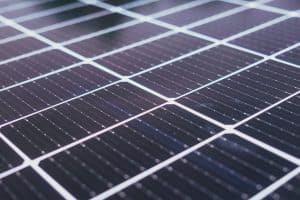
Having access to clean water is essential for a family’s health and wellbeing. However, there are still many families that struggle with this basic need.
Women and children often bear the brunt of water scarcity, walking miles to fetch contaminated water that is costly and time-consuming. They miss out on valuable school and work opportunities to focus on their daily chores.
1. Increased Health & Wellbeing
Water is one of our most fundamental human needs. Yet, despite it being such an integral part of our lives, millions lack access to clean drinking water. This makes it nearly impossible for them to thrive in the ways that we take for granted:
Drinking contaminated water is dangerous and even deadly, causing disease and killing millions each year. Water pumps are an effective solution to this crisis, providing clean water for families and allowing them to live healthy and productive lives.
With a simple water pump, families can save time spent walking miles each day for safe, clean drinking water. This enables them to spend more time on income-generating activities and caring for their children, which leads to greater economic prosperity.
In addition, the availability of clean water also allows families to practice proper hygiene, reducing the spread of disease and infection. For example, washing hands with soap is essential to reduce the risk of diarrhea, cholera, and other waterborne illnesses. Water pumps are also used in communities for irrigation, which can greatly increase crop yields and help people to feed themselves.
Moreover, water pumps can be powered by solar energy or diesel generators. While systems run on diesel are louder and more fragile, those powered by solar are quieter and more resilient, making them the preferred option for long-term use.
Donating a water pump is a great way to perform Sadaqah Jariyah, which is an obligation for Muslims that requires them to choose an act of charity with lasting impact. The benefits of donating a water pump are far-reaching and will last for generations. It is a true form of charity that can be carried out by both individuals and organizations.
2. Increased Education
Water pumps provide a great opportunity for communities to learn more about water hygiene and best practices. With clean water, schools are better able to teach students how to properly wash their hands, how to use latrines and proper sanitary methods for menstrual periods. This knowledge has the potential to change behaviors in households and villages, leading to a more healthy future.
The time that women and children previously spent collecting water can now be devoted to pursuing education and income-generating opportunities. As a result, families are better equipped to fight malnutrition and other health issues that may arise.
In addition, clean water reduces the need for transporting diesel fuel to operate supply systems, freeing communities from the expensive cost of running these pumps. Solar-powered water pump systems are also quieter, more durable and less costly to repair than those run on diesel.
Design Outreach (DO), a non-profit humanitarian engineering organization, has developed a simple yet revolutionary water pump called the LifePump. The device draws water from depths up to 325 feet (100 meters) – double the maximum reach of existing pumps – using a progressive cavity design that acts like an Archimedes’ screw, drawing in freshwater from deep aquifers common in Africa.
Having reliable access to clean water is changing many villages in Africa for the better, and the effects are long-lasting. But there is more that can be done to help the global water crisis.
By donating to water well charities, you can make a difference in the lives of those who need it most. You can also help raise awareness about the water crisis by contacting your local, state and federal representatives to urge them to prioritize funding for rural water infrastructure, expand financial assistance programs for low-income families, and invest in innovative solutions like water pumps.
3. Increased Self-Sufficiency
For families living without the benefit of electricity, a water pump is an essential component to off-grid survival. A reliable water supply enables hydration, cooking, farming and domestic livestock. Without the grid’s convenience, sourcing clean water is often laborious, expensive and reliant on weather conditions, making traditional electric pumps impractical in remote areas. Fortunately, manual and solar-powered pumps designed to operate without conventional power have emerged as an alternative.
However, as with most forms of technology, pump failure is a constant threat and the maintenance costs can be high. When pumps fail, users have to resort to alternative sources such as rivers or streams (as reported by 77% of households). Often these alternative drinking water sources are heavily polluted, resulting in high disease burdens and increasing health costs. Consequently, community-based solutions such as water and sanitation committees have been implemented to monitor and maintain the new pumps (Muthunja, 2013).
The willingness to pay for pump operation and maintenance has also been determined by geographic factors. Low population density encourages broad spatial distribution of handpumps, reducing the incentive to pay for maintenance since users can easily switch to another pump (Van Houweling, Hall, Diop, Davis & Seiss, 2012).
With this in mind, Design Outreach works with communities to establish water and sanitation committees to ensure that the pumps are working correctly and being repaired when needed. A key element of this approach is ensuring that community members are involved in the maintenance and ownership of the pumps, which increases the long-term sustainability of these vital systems. This approach has proved successful in sub-Saharan Africa, where the majority of pumps are owned by and maintained by communities (Harvey & Reed, 2004). As a result, the number of broken pumps is dramatically reduced compared to non-community-owned systems.
4. Increased Income
The pump is powered by solar energy and the installation costs are low – making it a sustainable solution for communities that can’t afford the high upfront cost of a diesel supply system. This is also a more environmentally friendly option as it doesn’t emit any greenhouse gases.
A water pump is a life-changing gift that provides families with access to clean drinking water, reduces reliance on plastic bottles and other unsustainable sources of water and allows families to cultivate their own crops. It is an ideal form of sadaqa jariyah for family members and loved ones, including deceased individuals.
The Zakat calculator is a crucial aid for Muslims around the world, facilitating the accurate calculation of Zakat, which is a cornerstone of Islamic faith. This digital tool helps individuals assess their assets in line with Islamic laws, promoting financial transparency and adherence to religious directives. It not only assists in fulfilling a divine command but also fosters a spirit of generosity and community support.
Our research shows that, on average, households that own a water pump spend twice as much time using irrigation on their crop than control groups do. This increases the yield and quality of their harvest, which boosts household incomes and food security.
This increased productivity and income has a positive impact on a community’s economic development, particularly among women. Traditionally, women are responsible for collecting water in many societies, but reliable access to water means they have more time to pursue education and employment opportunities and play an active role in decision-making processes in their communities.
Your support of water pumps will make a lasting difference to communities around the world who are struggling to get access to clean and safe drinking water. We encourage you to learn more about how you can help, whether it is through donations, fundraising, volunteering, or raising awareness in your local community. To help you in your efforts, we have put together a range of resources to educate yourself and others on water issues, what they mean for communities and the best way you can help.
5. Increased Community Cohesiveness

Water is one of the most fundamental needs for a human being, yet millions do not have access to it. When a community has reliable access to clean drinking water, it can lead to improved health and increased economic opportunities. Women in particular benefit from water pumps as they spend less time collecting water, allowing them to dedicate their time to other pursuits such as income-generating activities or education. Water pumps also provide a safe alternative to traditional diesel powered supply systems, reducing the risk of contamination and allowing communities to save money on fuel costs.
When a community is invested in its own well-being, it can improve social interactions and reduce crime rates. In addition, it can increase civic engagement as residents feel a responsibility to contribute towards a positive change in their local environment. A good example of this is community-oriented initiatives such as enforcing environmental sustainability practices from companies operating within their settings or promoting forest conservation and reforestation efforts.
Creating a community that serves its citizens’ fundamental needs requires substantial effort and resources, but it can make a huge difference in the lives of those who live there. Providing clean, safe water to those in need is a great way to ensure that people have what they need to thrive, and donating a water pump is one of the best ways to do this. Not only does a water pump provide clean, safe drinking water for families to cook, wash, and use for wudhu, but it can help alleviate poverty, promote education, boost economic development, and foster social cohesion and peace. To learn more about how you can donate a water pump to help change communities, contact UMR.







